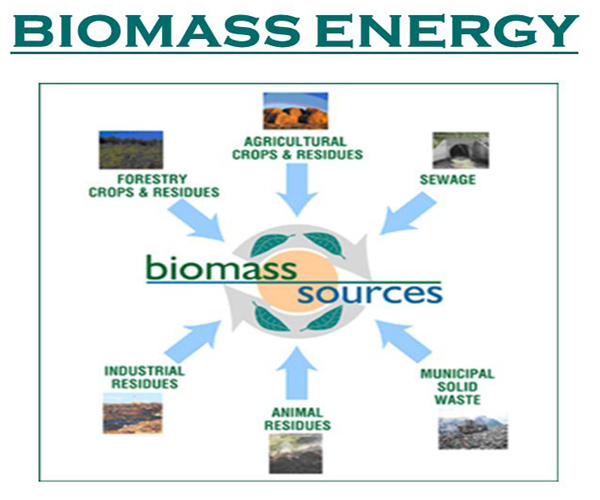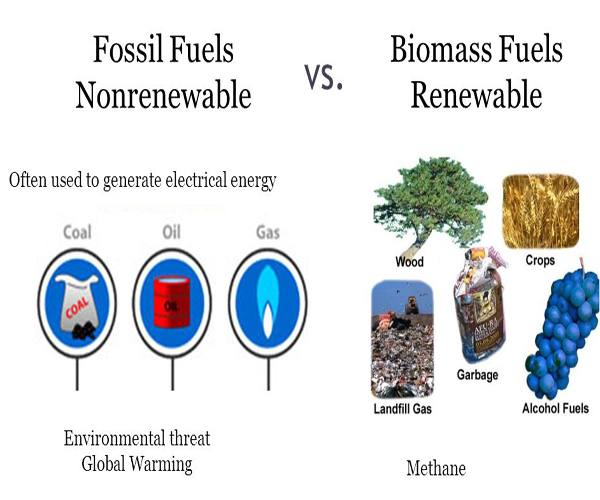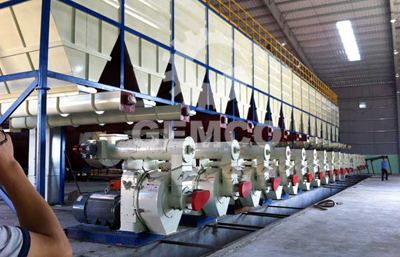biomass energy & biomass fuels
Biomass energy & Biomass fuels
Biomass Energy

Biomass energy is the use of organic material to generate energy. From the start of civilization, biomass fuels were unquestionably being utilized for the generation of energy. However, in the past few decades, debates have raged over whether biomass fuel is really useful and sustainable. This fierce debates prompted researchers to look into the feasibility of biomass energy. The results were astounding. Research study results learned that biomass has numerous benefits over fossils fuels and it helps cut down emission of greenhouse gases.
Biomass energy, sometimes known as bioenergy, is a renewable form of energy produced from organic matter. Biomass occurs in the form of living or recently living plants and waste. Biomass energy is the energy which is contained inside plants and animals. This can include organic matter of all kinds: plants, animals, or waste products from organic sources. Organic materials used to produce biomass energy include forest residues (branches, dead trees, and tree stamps), wood chips, yard clippings, and municipal solid waste. This means that wood remains the largest source of biomass energy.
Chlorophyll present in plants absorbs carbon dioxide from the atmosphere and water from the ground through the process of photosynthesis. The same energy is passed to animals when they eat them. It is considered to be as renewable source of energy because carbon dioxide and water contained inside plants and animals are released back into the atmosphere when they are burned and we can grow more plants and crops to create biomass energy.
For biomass energy to be produced, the organic material must undergo biomass conversion process. The different biomass conversion processes available include: Combustion,Gasification,Pyrolysis,Bio-digestion,Fermentation
Advantages of Biomass Energy
Biomass has been in existence before people started talking about renewable energy sources and energy efficiency. This long term use would not be possible if biomass didn’t have any benefit. As most governments are leading campaigns to find alternative sources of fuel to fossils, biomass energy continues to make headlines as a possible alternative. Here are the advantages that make biomass energy a perfect alternative to fossil fuels.
It’s a renewable form of energy.
It’s carbon neutral.
Widely available.
It’s cheaper compared to fossil fuels.
Minimizes overdependence on traditional electricity.
Reduces amount of waste in landfills.
It can be used to create different products.
Biomass Fuels

Biomass fuels are organic materials produced in a renewable manner. Two categories of biomass fuels, woody fuels and animal wastes, comprise the vast majority of available biomass fuels. Municipal solid waste (MSW) is also a source of biomass fuel. Biomass fuels have low energy densities compared to fossil fuels. In other words, a significantly larger volume of biomass fuel is required to generate the same energy as a smaller volume of fossil fuel.
The low energy density means that the costs of fuel collection and transportation can quickly outweigh the value of the fuel. Biomass fuels are typically consumed on-site or transported short distances only (e.g., less than 50 miles). Biomass fuels tend to have a high moisture content, which adds weight and increases the cost of transportation. The moisture content also decreases combustion performance.
There are two primary factors to be considered in the evaluation of biomass fuels: Fuel supply, including the total quantities available, the stability of the supply or of the industry generating the fuel, and competitive uses or markets for the fuel. Cost of biomass fuel collection, processing, and transportation, and who pays these costs.
Biomass is organic matter just like fossil fuels (coal, oil, or natural gas), the difference is that fossil fuels were formed in the earth from plant and/or animal remains over millions of years, while biomass on the other hand is more recently created and is renewable on a much smaller time scale as plants grow continuously, animals constantly produce manure, and people throw away waste material every day. Also, using biomass materials for fuel does not deplete their supply because they are constantly being grown making biomass a renewable energy resource. For this reason, many people believe that “biobased products” including Bioenergy and Biofuels will be a major renewable energy source for the future.
Get In Touch
We receive enquiries in English, Español (Spanish), Русский язык (Russian), Français (French) and العربية (Arabic). Our professional team will reply to you within one business day. Please feel free to contact us!




